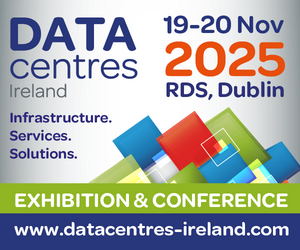Accounts software was obviously one of the first applications of computing to business, going back to the days of ‘business machines’ and mainframes and changing the world of smaller businesses with the arrival of the PC. The accounts function is the one universal essential in every business of any size or sector. Even new small start-up businesses tend to be IT-aware, are often advised by local enterprise boards or accountants and so usually the first thing they do – having found premises –is to invest in a PC with office and accounts software.
Capbale of even more…
As all small business proprietors are aware, the big management benefits of financial systems go well beyond the basic bookkeeping chores. The software can manipulate the information in the system easily and swiftly for you, reporting on many aspects of the business that are money-based. Like the simple, vital and constant question: ‘How much are we owed right now?’ Any time you need a bit of latitude, your bank manager will certainly ask the same question! Management is all about timely information and the most compelling reason to provide your company with the best financial application you can afford is to ensure constant state-of-the-business feedback on every significant aspect affecting its financial health. All accounts programs will generate a range of standard reports which are usually more than sufficient for most smaller firms. Most will also let you define your own, including presentation formats, such as creating some standard charts to show your key ratios and update regularly. You can also export data into spreadsheets for reporting and analysis. Reports can be extracted from virtually any area, from simple administrative lists of customers, suppliers, prices, employees, etc. to complex analyses. Sales or payment patterns analysed by customer would be common to most, for example. Where the more sophisticated packages score is in the management accounting fields – budgeting, forecasting and monitoring of performance.
All of this is genuinely great and there is no question that accounts packages are some of the best deals in business software. But as a business grows, in complexity as well as size, the fit between the company and its financial software may not be as good as it could or should. Existing users – and their accountants – tend to be very loyal to their accounts packages. They will change product only for serious business reasons to do with new functionality required. E-commerce, mobile sales forces and relationships in a supply chain are among the kinds of reasons where the simpler, traditional packages may not offer the best solutions. The common factor here is connectivity – the ability to link fairly seamlessly and automatically to other applications or new functions that goes well beyond the simple export of file data, like figures to play with on a spreadsheet.
“The advice to a new SME today would be to invest as much as you feasibly can in the most comprehensive financial software package,” says Glynis Elrington, sales director of market leaders Sage Ireland. “If I started a business in the morning knowing what I know now, that’s what I’d do! The thing is that a single user starting out can use a sophisticated suite – even if unlikely to need or use anything like the full functionality, just as most of us only use a fraction of the power of our office software. As the business grows and people become more proficient, the smart features come into play. A simple and basic package will do the core bookkeeping and ledger tasks perfectly adequately, but when your needs grow you may have to change – which everyone puts off longer than they really should!”







Subscribers 0
Fans 0
Followers 0
Followers